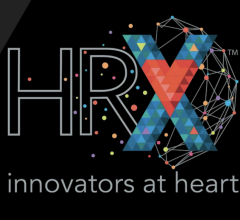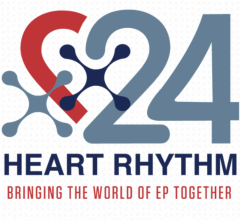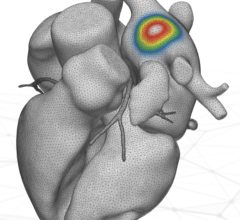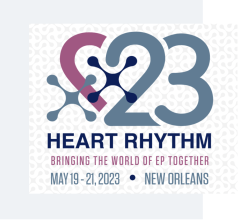
April 24, 2025 – The Heart Rhythm Society (HRS) has unveiled new research that underscores the critical role of artificial intelligence (AI) in improving procedural safety in cardiac electrophysiology (EP), demonstrating how intelligent, real-time decision support can help mitigate risks and improve clinical confidence in complex interventions. Researchers presented these findings at Heart Rhythm 2025 in San Diego, California.
Atrial fibrillation (AF) is one of the most common arrhythmias, affecting approximately 37.5 million people worldwide, and by 2050, it’s predicted that AF cases will increase by more than 60 percent.1 Persistent AF is a prolonged episode of AF that typically lasts more than seven days and requires medical intervention to restore sinus rhythm. While ablation has become a cornerstone of AF management, ensuring patient safety during these procedures remains a top priority for electrophysiologists. By leveraging AI, physicians can utilize advanced tools to predict patient outcomes, effectively treat challenging conditions like persistent AF, and ultimately enhance patient care.
The DeePRISM model is an AI-driven approach for predicting AF termination sites during catheter ablation to enhance procedural success. The DeePRISM model provides a real-time, automated platform for intracardiac waveform analysis during ablation, leading to better long-term results while maintaining procedural safety. The model was developed using retrospective data from 110 patients with persistent AF, incorporating deep learning and PRISM (Morphological Repetitiveness by Periodicity and Similarity) analysis to analyze intracardiac electrograms. The DeePRISM model demonstrated robust performance on the prospectively independent test set, achieving acute AF termination in 40% of patients. During the 2-year follow-up, patients who underwent DeePRISM-guided ablation experienced improved outcomes, with up to 70% remaining free from any atrial arrhythmias.
"With the introduction of the DeePRISM model, we are taking a significant step forward in the treatment of persistent atrial fibrillation,” said Chih-Min Liu, MD, PhD, Taipei Veterans General Hospital. “Our study shows that AI-driven, real-time analysis not only enhances the success of the procedure but also ensures patient safety, marking a promising advance in electrophysiology."
The research was presented during the HRS session “Digital Health and Innovation – Using Artificial Intelligence to Improve the Diagnosis and Treatment of Arrhythmias: Artificial Intelligence-Driven Precision Ablation in Persistent AF: Enhancing Endocardial Signal Prediction for Ablation Success.”
For more information, visit www.HRSonline.org.
1. Lippi G, Sanchis-Gomar F, Cervellin G. Global epidemiology of atrial fibrillation: An increasing epidemic and public health challenge. Int J Stroke. 2021; 16(2): 217-221.


 July 30, 2024
July 30, 2024 









